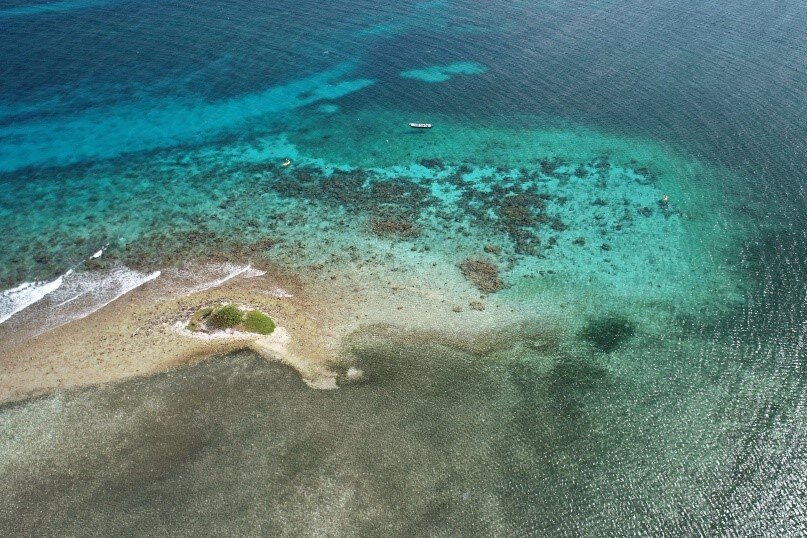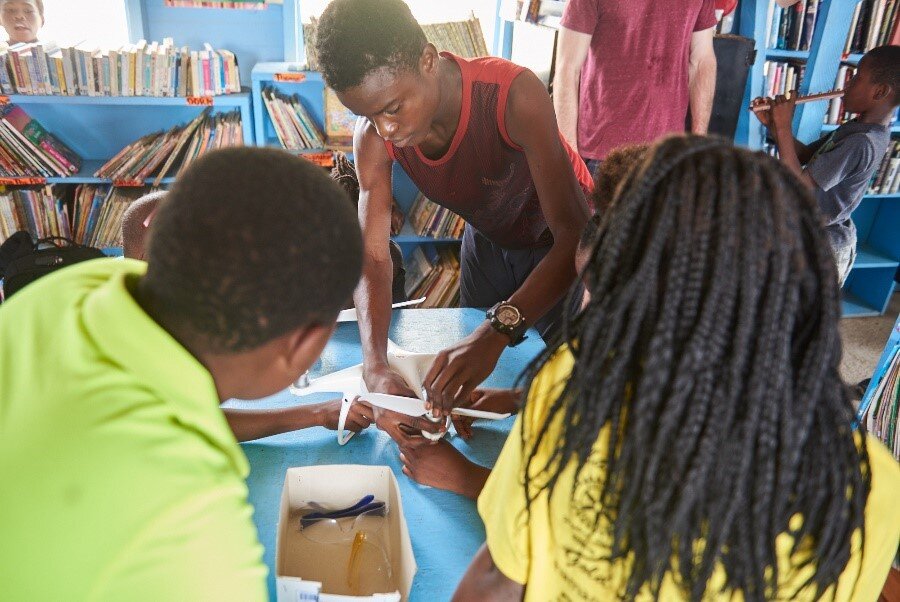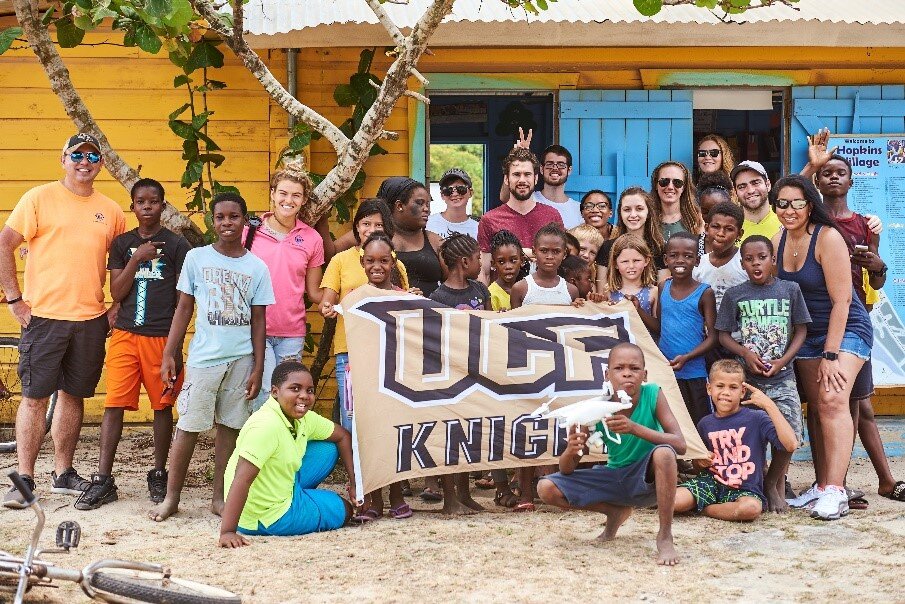UCF study abroad students map and explore Belize
Opening up one’s worldview. Exploring foreign landscapes. Interacting with new cultures. Engaging in research with communities. These are just some of the things that a group of eleven UCF students did this May with the UCF Participatory Geographic Information Systems (GIS) study abroad class in Belize. The class is part of the larger Citizen Science GIS at UCF work led by Associate Professor Timothy Hawthorne of the Department of Sociology.
While in Belize, students visited multiple locations aroundthe country, and their trip included two community-based research projects.First, they worked in the small coastal village of Hopkins. The village ofnearly 3,000 residents recently upgraded its water system, yet no mapped dataabout the new system had been shared with the community. UCF students partneredwith the village council and the water board to map over 9 miles of pipelinesand over 550 water meters to support this new infrastructure using Esri’sCollector for ArcGIS, a mobile mapping application. The maps and data will soonbe available as free, downloadable resources on the Hopkins Village Open DataMapping Portal created by the Citizen Science GIS team using Esri’s ArcGISOnline platform.
“The data collection in Hopkins was a truly enlighteningexperience as it allowed us to make a connection between GIS methodologies andtheir real-world applications. Also, having conversations with local residentsduring this process led me to a deeper understanding of the culture in Belizeand how it compares to my own culture,” said Larissa Gehringer, UCF HonorsCollege and biology undergraduate student.

The second project saw students head out on the Caribbean Seaon a 45 minute boat ride off the mainland of Belize to South Water Caye, a smallisland located on the edge of the Belize Barrier Reef. Students worked withlocal guides, boat captains and resort managers to update the island’s snorkel andkayak map for tourists. The fieldwork included some students in kayaks withiPads and GPS units mapping points, while snorkeling students took notes andsurveyed key points of interest underwater along the reef.

“Collecting data through snorkeling enabled us to getinformation for the people leading the operations in South Water Caye. We usedthe data that we gathered to create maps for visitors to view and interactwith. Plus, we had the opportunity to see some amazing coral reefs and colorfulfish!” said Ilan Gritzman, UCF public administration undergraduate student.
In addition to their research, UCF students also hosted ayouth education outreach program in Hopkins Village. Nearly 25 childrenparticipated in hands-on mapping and drone activities. The highlight of theeducation program was when the youth earned their pilot wings flying ParrotMambo mini-drones at the library.

The 10 day trip to Belize also included introductory GIStraining in the UCF classroom before and after the trip on the UCF campus. AtUCF, students learned basic GIS techniques and worked as a team to complete themapping projects. Only a handful of students had previous GIS experience, whichmakes the research projects even more exciting.
“A class like this shows the power of collaboration, andwhat can happen even when students and communities are just learning these newtechnologies for the first time. I hope more students have the opportunity tostudy abroad in their college careers. There is nothing quite like theexperience of visiting a new place with a new group of people while doingcommunity-based research. It’s a humbling and empowering experience for ourstudents, and it supports communities abroad as well,” said Hawthorne.

The Belize GIS study abroad course runs again in Summer A2020. To learn more about the class and the work of Citizen Science GIS at UCF,please visit www.citizensciencegis.org.
